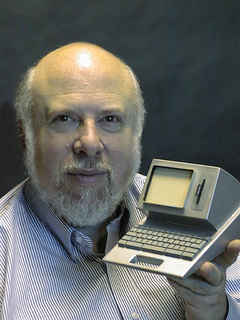A Quote by Isaac Asimov
The Three Laws of Robotics: 1: A robot may not injure a human being or, through inaction, allow a human being to come to harm; 2: A robot must obey the orders given it by human beings except where such orders would conflict with the First Law; 3: A robot must protect its own existence as long as such protection does not conflict with the First or Second Law; The Zeroth Law: A robot may not harm humanity, or, by inaction, allow humanity to come to harm.
Related Quotes
In the smart home of the future, there should be a robot designed to talk to you. With enough display technology, connectivity, and voice recognition, this human-interface robot or head-of-household robot will serve as a portal to the digital domain. It becomes your interface to your robot-enabled home.
So we and our elaborately evolving computers may meet each other halfway. Someday a human being, named perhaps Fred White, may shoot a robot named Pete Something-or-other, which has come out of a General Electric factory, and to his surprise see it weep and bleed. And the dying robot may shoot back and, to its surprise, see a wisp of gray smoke arise from the electric pump that it supposed was Mr. White's beating heart. It would be rather a great moment of truth for both of them.
And finally remember that nothing harms him who is really a citizen, which does not harm the state; nor yet does anything harm the state which does not harm law [order]; and of these things which are called misfortunes not one harms law. What then does not harm law does not harm either state or citizen.
Some people think that, inevitably, every robot that does any task is a bad thing for the human race, because it could be taking a job away. But that isn't necessarily true. You can also think of the robot as making a person more productive and enabling people to do things that are currently economically infeasible. But a person plus a robot or a fleet of robots could do things that would be really useful.
































